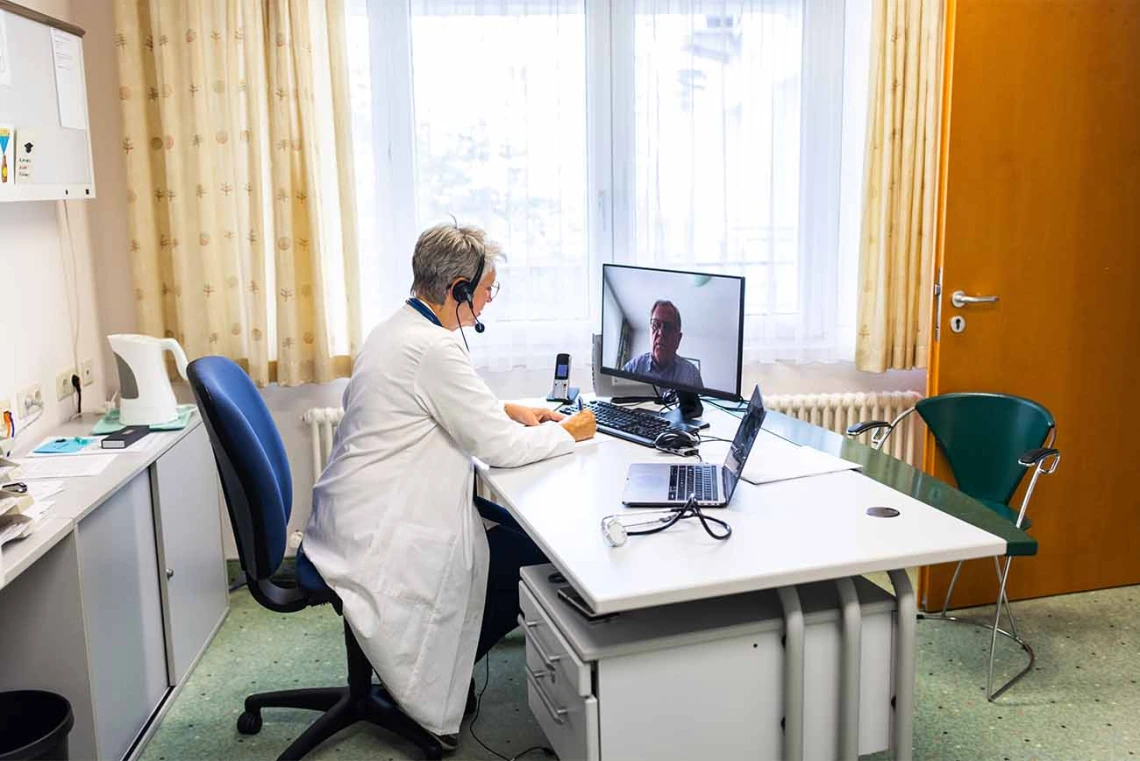Five emerging trends in the physician assistant profession
It’s an exciting time to be a physician assistant as the profession is evolving rapidly with expanded scopes of practice, leadership roles, technology, advanced education opportunities and competitive salaries.

Physician assistants are stepping into influential roles and shaping the future of the profession.
National Physician Assistants Week is a perfect time to spotlight the evolving role of physician assistants, also known as PAs, in health care.
PAs are licensed medical professionals who are trained to provide a range of health care services. They conduct physical examinations, diagnose and treat illness, assist in surgery, write prescriptions, manage treatment plans and provide preventative care counseling. PAs work in various medical settings and across multiple specialties. PAs may serve as a patient’s primary care provider.
The occupation is ranked No. 2 in Best Health Care Jobs by U.S. News & World Report, reflecting high job satisfaction, competitive salaries and promising growth prospects. So, what’s next for this amazing career field? Let’s examine five emerging trends to watch as our profession continues to grow.

In the operating room, a PA can assist a licensed physician during surgery.
Expanding scope of practice
One of the most exciting developments in the PA profession is the expanding scope of practice. Starting in 2024, Arizona will allow PAs with 8,000 hours of clinical experience in their specialty to establish their own collaborative medical practices without the direct oversight of a supervising physician. This is a significant change, especially for patients in rural and underserved areas where access to health care can be limited. By empowering PAs to operate independently, we can expect improved health care access and continuity of care for many communities.
Embracing leadership roles
PAs are stepping into leadership positions like never before. Around 94% of health care organizations offer structured leadership pathways, and PAs are taking on essential roles that influence health care delivery at a systemic level. From workforce planning to fiscal analysis, PAs are not just health care providers; they’re becoming pivotal decision makers within their organizations. This trend reflects a broader recognition of the vital contributions that advanced practice providers can make beyond patient care.

PAs are using virtual medicine to provide timely care for chronic conditions and for those in medically underserved rural communities.
Virtual medicine and technology-driven care
The pandemic accelerated the adoption of virtual medicine, and PAs are at the forefront of this transformation. PAs are trained in telehealth technologies to manage chronic conditions such as diabetes and hypertension remotely, ensuring patients receive timely care without the need for in-person visits. This shift enhances access and promotes efficient use of health care resources. As technology continues to evolve, so will the role of PAs in delivering care through virtual platforms.
Advanced education and specialized training
Education for PAs is becoming increasingly advanced, with many professionals pursuing doctorate degrees and specialized residencies. The National Commission on Certification of Physician Assistants now offers board certification in 11 medical and surgical specialties, with more in development. This emphasis on specialized training ensures PAs are well equipped to meet the diverse needs of patients, leading to higher quality care and improved outcomes.

PAs can excel in various medical specialties and subspecialties throughout their careers, with the versatility to specialize through advanced training, fellowships, and residencies.
Growing salary and job opportunities
The financial prospects for PAs remain strong, with a median salary of around $127,000 expected in Arizona in 2024. The demand for PAs is on the rise, with more than 1,000 job openings in Arizona alone. As health care continues to evolve, PAs will be essential in meeting the growing demand for quality health care services, making this an attractive career path for those interested in the medical field.
The PA profession is experiencing transformative changes that not only enhance the role of PAs, but also improve patient care across the board. PAs are positioned to play a crucial role in the future of health care through an expanding scope of practice, leadership opportunities, advancements in education and the integration of technology. The future looks bright!
Interested in a career as a physician assistant? Click here for more information about the University of Arizona College of Health Sciences Physician Assistant program.
About the Author
Karis Kellner, MSPAS, PA-C, is the director of clinical education for the U of A College of Health Sciences Physician Assistant program. She received her undergraduate degree from the University of Arizona Eller College of Management and her Master of Science in Physician Assistant Studies from Francis Marion University in South Carolina. She completed her fellowship in emergency medicine in South Carolina, where she practiced clinically and precepted PA students in several academic and community hospitals. Karis continues to practice emergency medicine in Arizona and serves as a medical officer in the Army National Guard.

